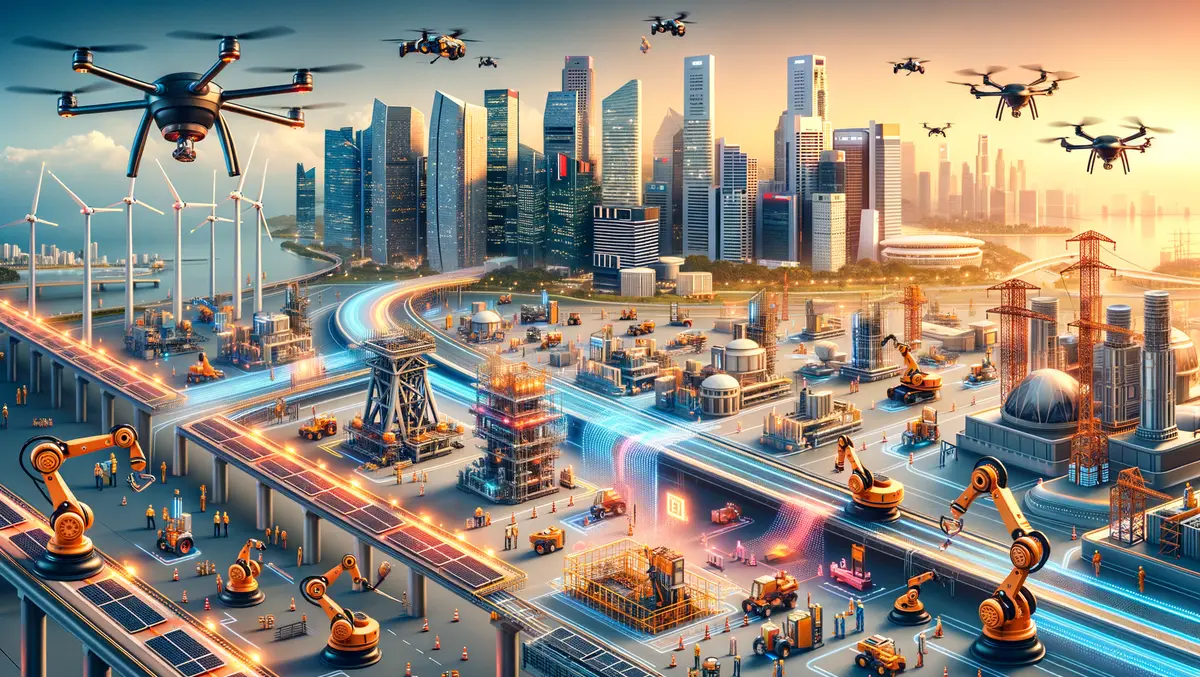
Rapid digital adoption in Singapore's construction sector
Autodesk has launched its latest State of Digital Adoption in the Construction Industry 2024 report, revealing significant digitalisation trends within the industry. Conducted jointly with Deloitte, the second edition of this annual survey draws upon insights from 933 construction firms across Singapore, Australia, Japan, India, Malaysia, and Hong Kong.
The report highlights that construction firms in Singapore are leading in terms of digitalisation efforts, with more than 20% of their expenditure currently being directed toward technology adoption. Firms in Singapore are utilising an average of five different technologies and aim to increase this number to seven, surpassing other countries included in the study.
The rapid pace of digital transformation in Singapore has been underpinned by supportive government policies, particularly the Built Environment Industry Transformation Map. This initiative has prioritised the adoption of Building Information Modelling (BIM) technology and common data standards, leading to high usage rates of BIM technologies (40%) and data analytics (36%) among local construction firms. Additionally, construction management cloud software, prefabrication, and modular construction technologies are being utilised by nearly four in ten firms.
Artificial Intelligence (AI) stands out as a pivotal technology for the future of Singapore's construction sector. According to the report, nearly all Singapore construction companies (98%) regard AI as crucial for business growth, the highest percentage among surveyed countries. Currently, 30% of firms are already trialling or using AI, with an additional 45% planning to implement the technology. The adoption of AI is expected to bring several benefits, including improved efficiencies (61%), better margins (59%), and enhanced competitive advantages (57%). AI's impact is particularly significant in the context of rising construction costs, with more than half of the surveyed companies (56%) citing its potential to reduce expenses.
Sumit Oberoi, Senior Industry Strategist at Autodesk for the Asia Pacific, remarked, "With the challenges facing Singapore's construction industry, AI and technology adoption have become integral for businesses to succeed and help reduce construction costs. Disruptive new technologies combined with a challenging business outlook mean that construction and engineering leaders will need to rethink their tools, workforce skill needs, and interactions with clients and contractors."
Despite the enthusiasm for digital technologies, there are notable barriers to their widespread adoption. The report points to a significant skills gap within the industry. Over a third (34%) of Singapore construction companies identified a lack of digital skills as a key hindrance. Furthermore, actions aimed at narrowing this skills gap are often perceived as ineffective, with 32% of firms finding new hires unable to address the issue adequately, which is double the regional average of 16%.
David Rumbens, Partner at Deloitte Access Economics, emphasized, "If all companies with plans to adopt AI do so, AI will have a similar level of prevalence in the construction industry as data analytics or mobile apps." He highlighted the importance of foundational technologies such as data analytics (47%), construction management software (43%), and mobile apps (40%), which form the backbone of construction operations.
The findings underscore several strategic areas for improvement in digital adoption within the construction sector. Key recommendations include starting with small pilot projects, selecting a digital champion, tracking various success measures, building a digital ecosystem, and ensuring that the right processes and talent are in place to support large-scale technology implementation. The report suggests that standardising data and establishing common data environments are critical for successful AI integration. Furthermore, leveraging government initiatives such as the SkillsFuture programme can facilitate the development of a future-ready digital workforce.
Regionally, the report indicates that 30% of construction companies across Asia Pacific are currently using or trialling AI, with a further 39% planning future implementation. Over 80% of respondents reported strong business returns or positive return on investment from technologies including AI, data analytics, mobile apps, robotics, and construction management software. This emphasises the critical role of technology in supporting business growth and enhancing project work.
The pervasive adoption of generative AI is also anticipated within the industry, with 94% of regional companies planning to incorporate AI and machine learning into their operations. This technology promises to streamline project proposals and leverage past project data for more efficient planning and execution.


